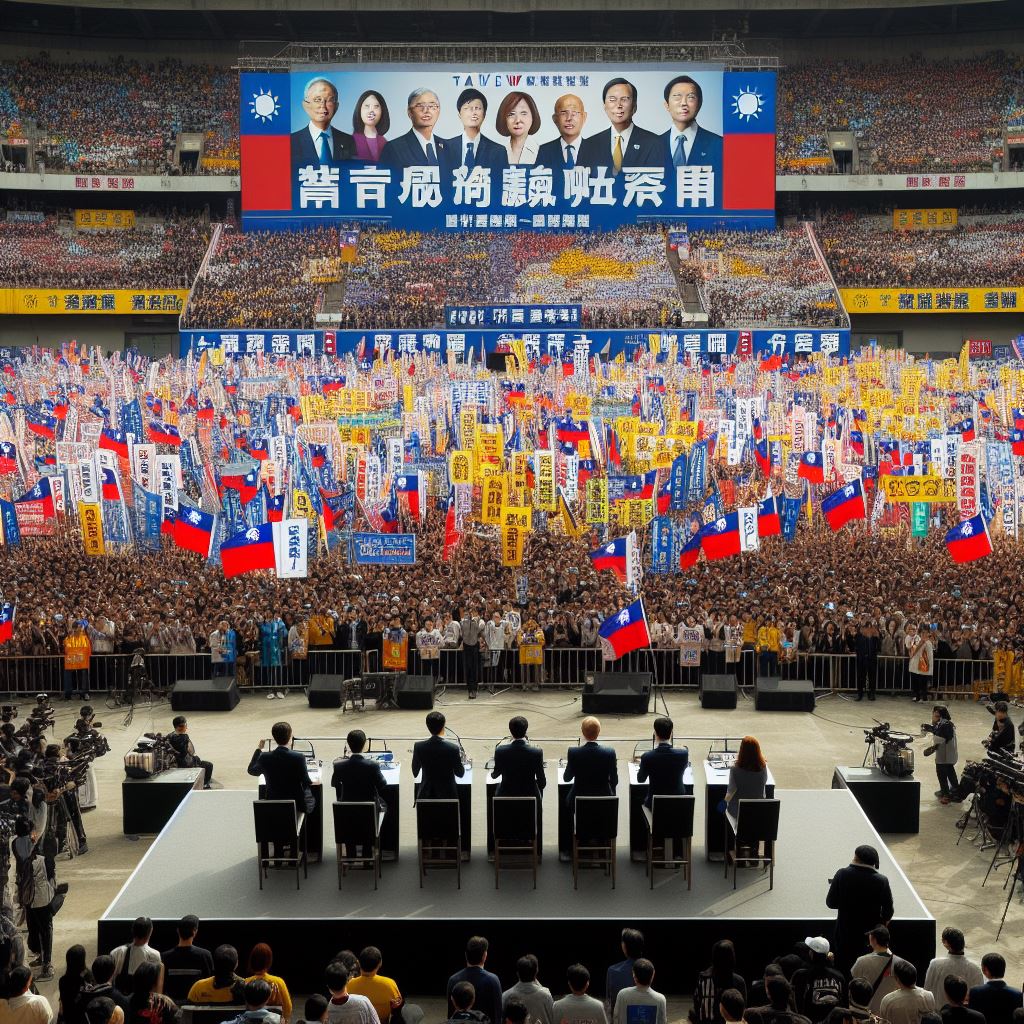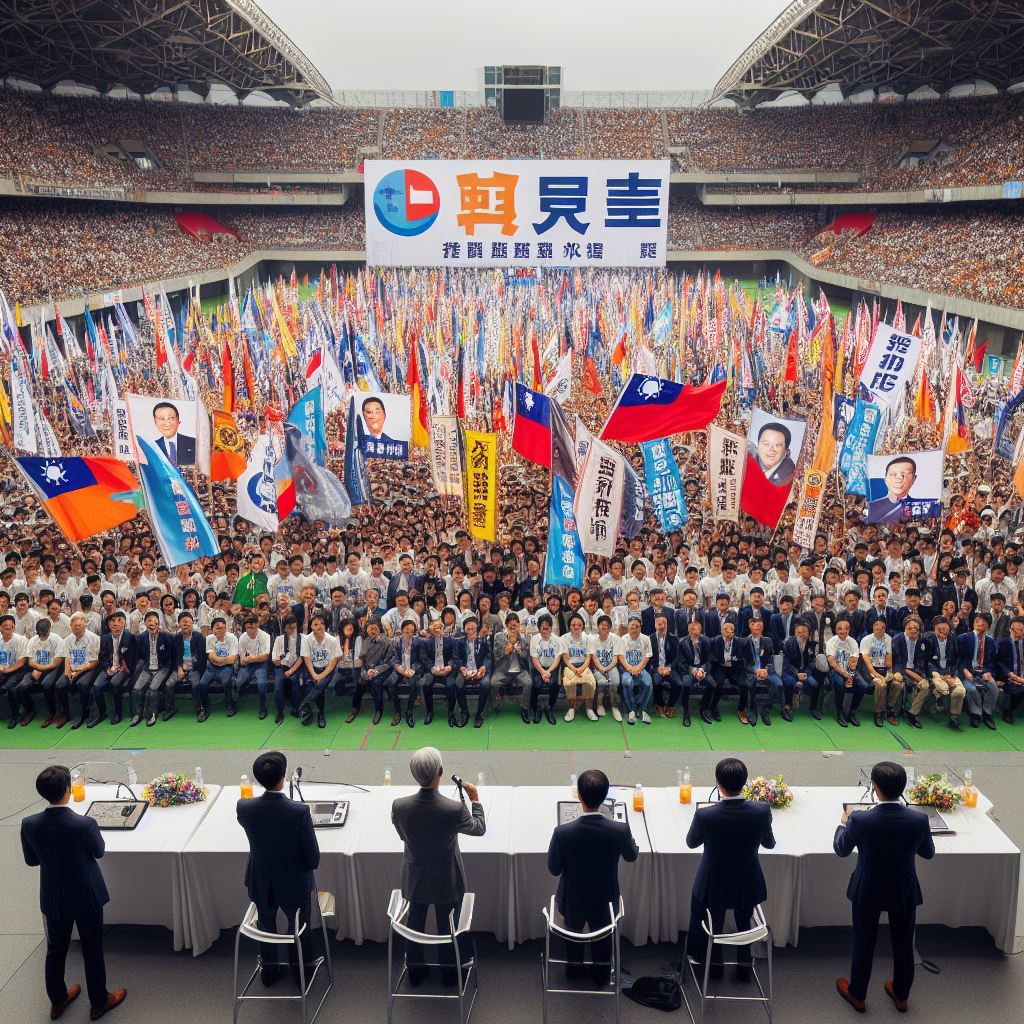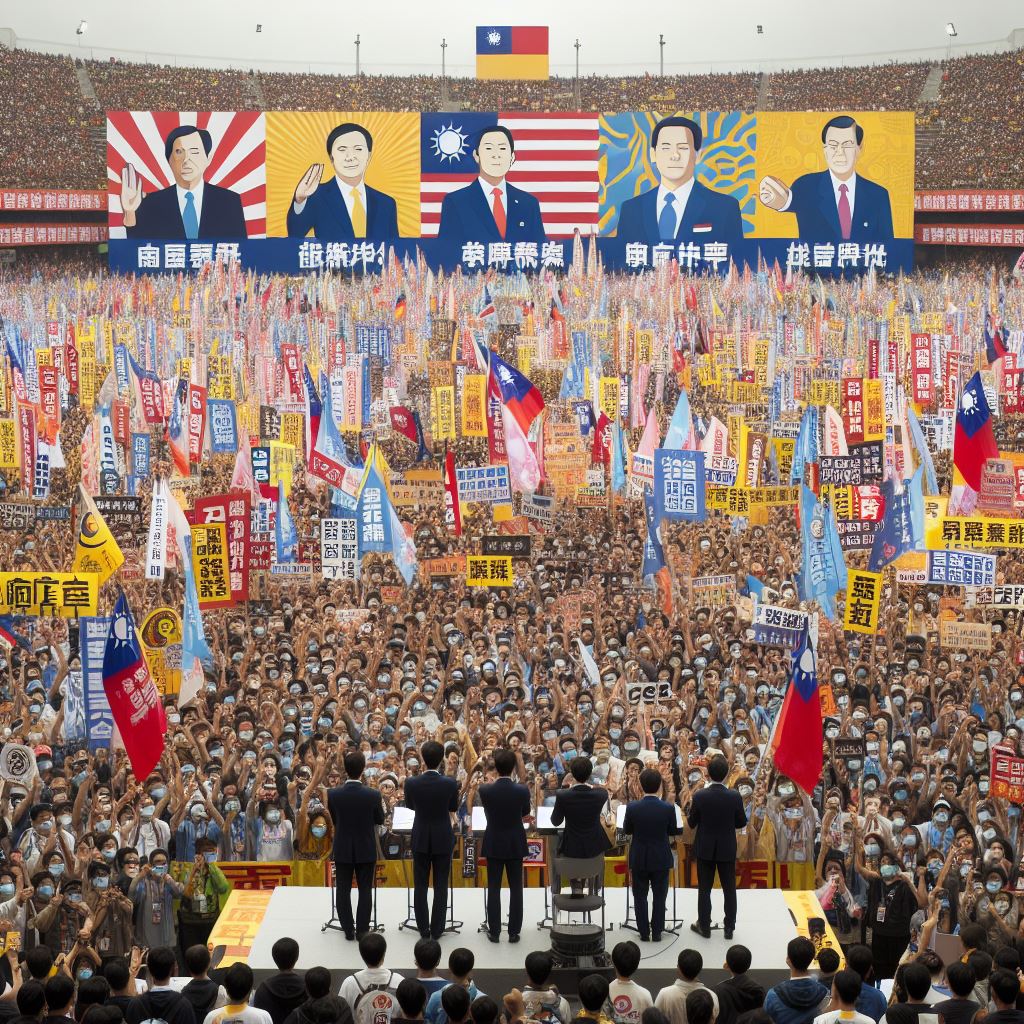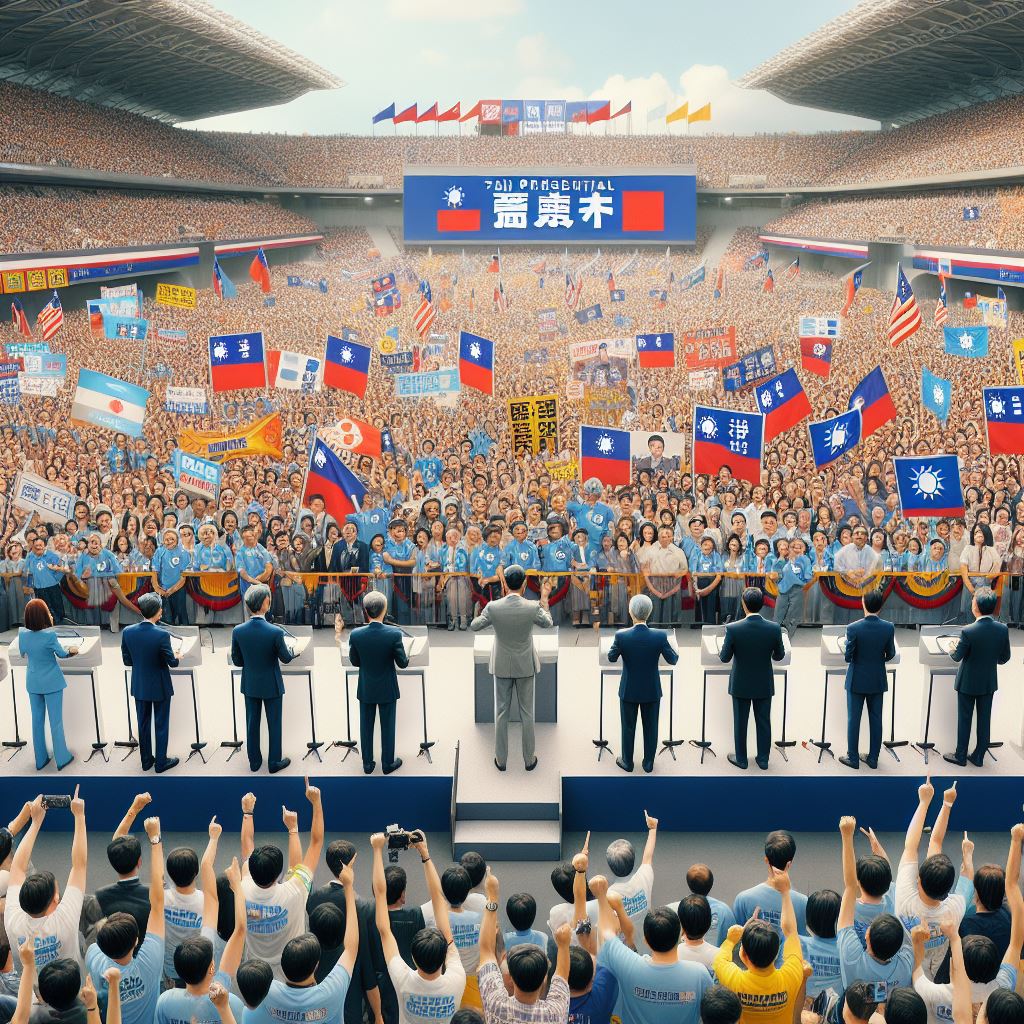台灣總統大選結果,賴清德成功當選總統,但國會沒過半!
台灣總統大選結果,賴清德成功當選總統,但國會沒過半!
2024年1月13日,台灣總統大選結果最終確定,賴清德成功當選總統,獲得558萬6019票,得票率為4成。國民黨的侯友宜獲得467萬1021票,得票率為33.5%。柯文哲則獲得369萬0466票,得票率為26.5%。
相較於2000年的選舉,這次的情勢更加複雜。專家難以判斷柯文哲能吸收多少藍綠票,而民進黨因為長期執政包袱例如高房價及物價等問題,使社會普遍期望政黨能夠輪替,比例高達6成以上。如果將國民黨和民眾黨的票數相加,野黨的得票數約佔總票數的六成,符合現在的民意。
從結果來看,民進黨的勝利並不那麼漂亮,失去國會過半的優勢。在立法副院長一職,勢必要讓位給民眾黨,並釋出更多資源分享。這次最大的贏家是柯文哲,缺乏資金和組織動員的情況下居然能獲得三百多萬票,實力不可小覷。而侯友宜則是最大的意外,在新北市擁有極高的民調卻在該地區的得票遠輸給賴清德。
當侯友宜宣布副手人選為趙少康時,深藍的支持者士氣大振。朱立倫將韓國瑜列為不分區第一名,企圖讓韓角逐立院龍頭寶座,許多韓粉也紛紛歸隊。然而,從各家民調顯示在投票前,國民黨已經從谷底翻身,與賴清德的差距只剩下3%左右。讓許多藍營支持者認為有機會贏得大選,但現實總是特別殘酷。事實證明,許多選民對藍綠惡鬥感到厭倦,原本考慮廢票或不投票的人都選擇了柯文哲。而柯文哲的實力遠超過眾人的想像。
如果時光倒流,藍白陣營能夠提早完成整合,是否有機會擊敗賴清德?就票數加總的角度而言,答案是肯定的。然而,在現實中是不可能的。因為黃姍姍在親民黨和國民黨的合作中,清楚地明白跟國民黨合作最終的結局是徹底泡沫化。只要不與國民黨整合,但至少可以保有一段時間的主體性。
在縣市首長大敗後,專家們原本預期賴清德可能面臨艱難的挑戰。然而,他長期以來的民調一直領先,最終成功維持民進黨的基本盤4成,只能說他在選舉中沒有犯過多錯誤。立委席次的大幅下滑是民眾給予民進黨的一個警訊。過去八年中有太多錢坑法案,對於無法降低房價和物價的執政,一般民眾生活艱苦,再也沒有人相信這是一個清廉的政黨。部分選民含淚投票,表達的訊息是他們不喜歡民進黨,但賴清德是勉強可以接受的人選。
侯友宜和柯文哲最大的問題在於他們的本命區都完全失守。兩人分別在新北市和台北市開出來的選票都相當差。侯友宜在最後選舉階段也不願意請辭市長,無法展現破斧成舟的決心,未來只能迎來民進黨的罷免,面臨可能與韓國瑜相同的下場。
這次選舉最大的贏家是人民。由於三黨都未達過半,沒有人能夠再次傲慢的通過錢坑法案。韓國瑜在立法院的出現或許能將過去可能隱藏的民進黨弊案曝光。各黨相互牽制,才能避免未來出現藏汙納垢的情況,這才是百姓之福。
On January 13, 2024, the results of the presidential election in Taiwan were finally confirmed, with Lai Ching-te successfully elected as president, receiving 5,586,019 votes and a vote share of 40%. Kuomintang's Hou You-yi garnered 4,671,021 votes, securing a vote share of 33.5%. Ko Wen-je received 3,690,466 votes, with a vote share of 26.5%.
Compared to the 2000 election, the situation this time is more complex. Experts find it challenging to determine how many blue and green votes Ko Wen-je could attract. The Democratic Progressive Party (DPP), burdened by long-term governance and issues like high housing and commodity prices, has led to a widespread societal desire for a change in political parties, with the proportion exceeding 60%. When combining the votes of the Kuomintang and the People First Party, the opposition parties collectively secured about 60% of the total votes, reflecting the current public sentiment.
From the results, the DPP's victory is not as resounding, losing its majority in the parliament. In the position of Legislative Vice Speaker, it will inevitably have to yield to the People First Party, releasing more resources for sharing. The biggest winner this time is Ko Wen-je, who managed to secure over three million votes without significant funding or organizational mobilization, showcasing his formidable strength. Hou You-yi, despite having high approval ratings in New Taipei City, unexpectedly lagged behind Lai Ching-te in the region.
When Hou You-yi announced his running mate as Chao Shao-kang, deep-blue supporters were greatly encouraged. Chu Li-lun ranking Han Kuo-yu as the top candidate in the proportional representation voting attempted to position Han for the role of the Legislative Yuan leader. Many Han supporters also rallied behind this strategy. However, various polls showed that before the election, the Kuomintang had already rebounded from the bottom, closing the gap with Lai Ching-te to around 3%. Many blue camp supporters believed they had a chance of winning the election, but reality proved to be particularly cruel. It turned out that many voters were tired of the blue-green rivalry. Those who initially considered casting invalid votes or abstaining ultimately chose Ko Wen-je, whose strength surpassed everyone's expectations.
If we could rewind time, and the blue and white camps could integrate earlier, would there be a chance to defeat Lai Ching-te? From the perspective of vote aggregation, the answer is certainly yes. However, in reality, it would be impossible. Huang Shan-shan, having collaborated with the Kuomintang and People First Party, clearly understood that cooperating with the Kuomintang would ultimately lead to complete marginalization. Although not integrating with the Kuomintang would mean losing some relevance, at least the People First Party could maintain its independence for a period.
After the defeat in the county and city chief elections, experts originally anticipated a tough challenge for Lai Ching-te. However, his long-term lead in the polls ensured he maintained the DPP's fundamental support at 40%. The significant decline in legislative seats serves as a warning to the DPP. The numerous controversial bills over the past eight years, particularly those related to financial issues, made life difficult for the average citizens unable to see a reduction in housing and commodity prices. People no longer believed in the party's integrity, and some voters cast their ballots with a heavy heart, expressing their dissatisfaction with the DPP but finding Lai Ching-te somewhat acceptable.
Hou You-yi and Ko Wen-je's major issue is the complete loss in their home regions. Both performed poorly in the votes from New Taipei City and Taipei City. Hou You-yi, despite reluctance to resign as mayor in the final stage of the election, failed to demonstrate the determination to turn the tide. He now has to face the imminent recall by the DPP, possibly facing a fate similar to Han Kuo-yu.
The biggest winner of this election is the people. With none of the three major parties securing a majority, no one can arrogantly pass controversial bills. Han Kuo-yu's presence in the Legislative Yuan may expose past malpractices of the DPP. The mutual restraint between the parties is crucial to preventing future occurrences of corruption, benefiting the people in the long run.




照片:DALLE3
- 1
- 2
- 3
- 4
